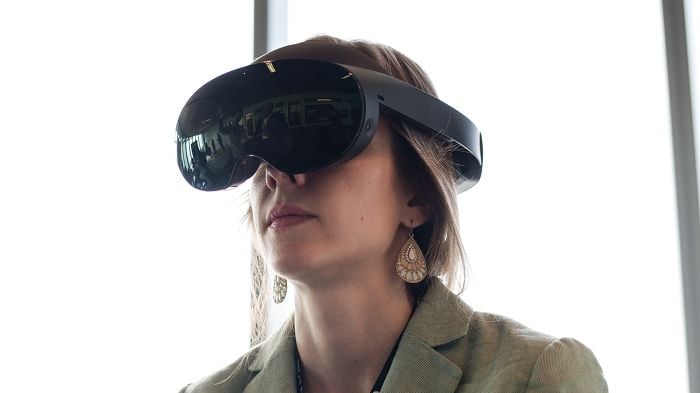Meta’s looking to generate more interest in its metaverse vision, by collaborating with 15 U.S. universities to facilitate classes in virtual reality, and examine how immersive technologies, including VR and AR, can contribute to the future of education.
The new program will facilitate a range of new learning opportunities, with a view to broader adoption in future.
As explained by Meta:
“The metaverse is the next evolution of the internet. It spans a range of technologies, including VR headsets that transport you to whole new environments, AR glasses that will one day project computer-generated images onto the world around you, and mixed reality (MR) experiences that blend both physical and virtual environments. We want more and more teachers and students to benefit from these technologies. That’s why, as students return for the new academic year, we’re announcing a new partnership program to help college students in the U.S. learn using VR.”
Participating universities include Stanford University, Morehouse College, and the University of Iowa, with the majority of VR courses focusing, at present, on soft skills, and dealing with situations that simulate real-life environments.
Though there are also some looking at nursing and surgical applications, which is another area that gained attention recently, when a surgeon in China conducted complex surgery from thousands of miles away, via a remote-controlled, robotic system.
To be clear, that process didn’t utilize VR, but it’s one of several areas where VR technology could be utilized in future to facilitate new opportunities.
Meta says that there’s already a range of education-related apps available for Meta Quest, including experiences related to science, engineering, technology, and math (STEM), history, language, and more. This new push will look to expand on this, while also further integrating VR into more areas, and making it a more mainstream consideration.
Meta also says that schools that are incorporating VR learning elements are seeing good results:
“A recent report by PwC found that 40% of VR learners are more confident in applying what they’ve been taught, and 150% more engaged during classes. [And] in a randomized control study of the VR mathematics program “Prisms”, students learning in VR had test scores 11% higher than those in the control group. The study also found an increase in students’ confidence, engagement and ability to describe mathematical concepts.”
There’s undoubtedly some educational benefit within these new, more immersive digital environments, which offer the capacity to experience things, as opposed to simply reading about them, or even viewing them in video clips. VR and AR can provide expanded opportunity in this respect, which, as the technology evolves, will logically offer huge learning potential.
This new initiative is the first step towards that, while it’ll also help Meta to normalize the usage of VR headsets, which could further expand adoption of its metaverse vision.
Meta’s also leaning into gaming communities for the same. Last week, Meta gave all attendees of the 2023 Roblox Developer Conference free Quest Pro units, in a bid to encourage them to engage in its new virtual worlds. Roblox, of course, is one of many gaming brands that’s already working with Meta on its VR worlds, and with millions of youngsters already engaging in the metaverse-like Roblox world, that could be a key opportunity to tap into the next generation of consumers, and build towards its metaverse vision.
Which is really where Meta is looking. Youngsters are already conducting the majority of their social interactions in gaming worlds like Roblox, Minecraft, and Fortnite, and it’s this generation, that’s grown up communicating through digital avatars, that’s more likely to be open to Meta’s next-level VR experience.
Leaning into education and gaming is a smart strategy here, and it’ll be interesting to see how Meta continues to look to these, and other avenues, as it works to build an audience for its virtual environment.
Meta also notes that it’s working on similar educational initiatives with selected European universities, while it’s also looking to make educational content easier to find in the Quest store.



